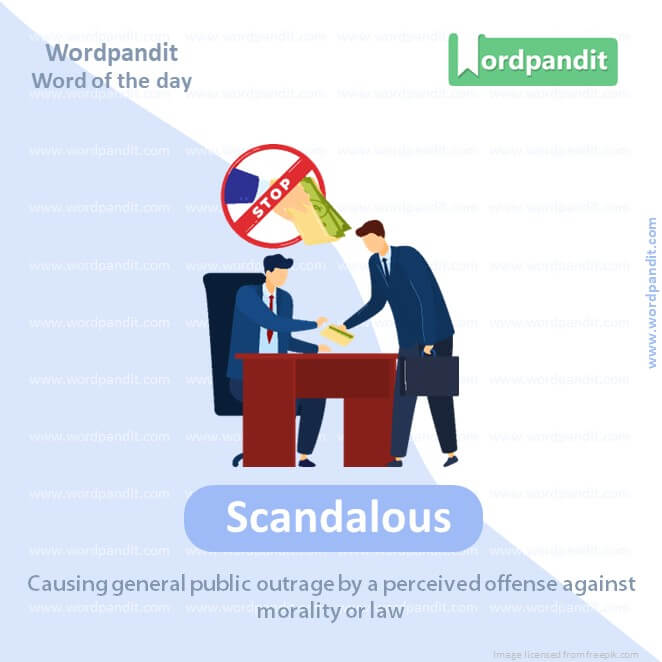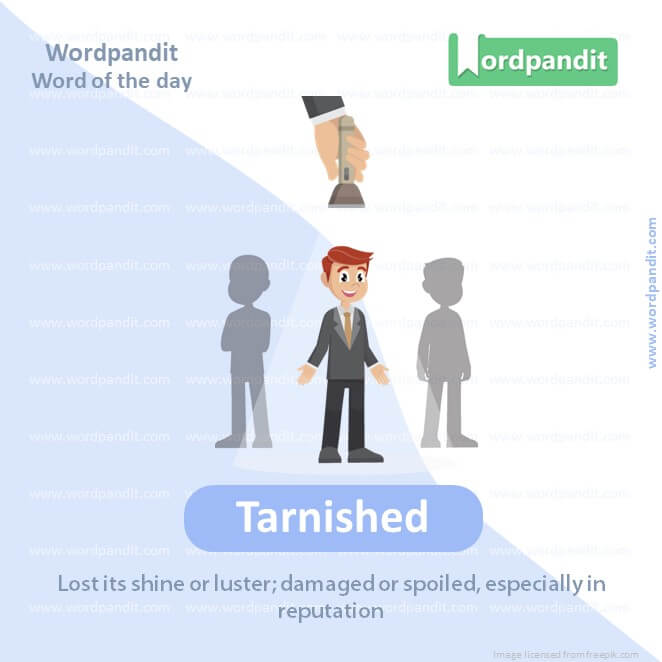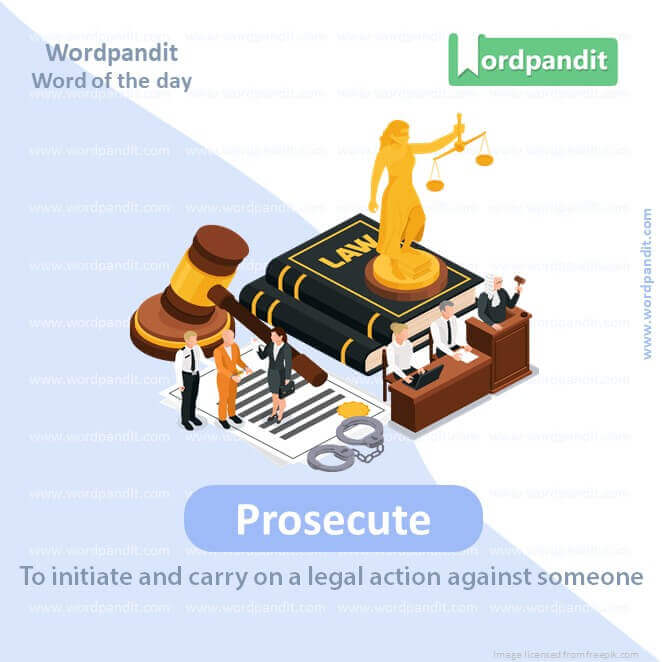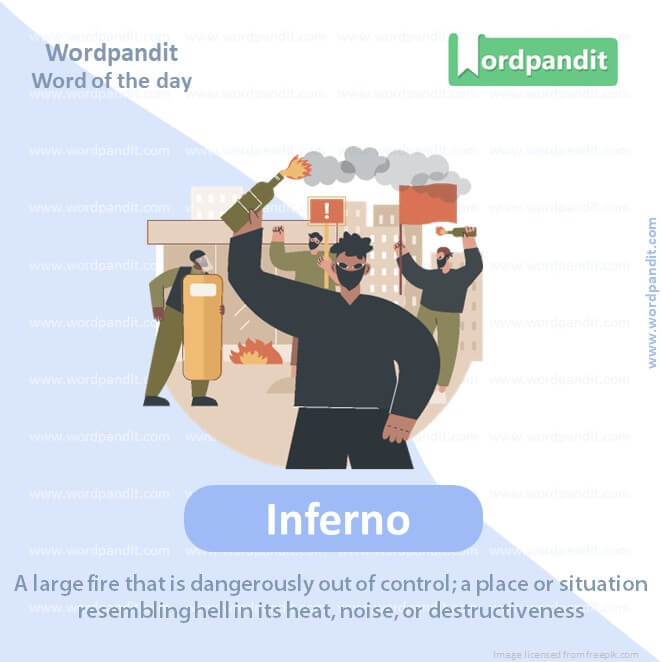Daily Vocabulary Words: List of Daily Used Words in Leading International Newspapers
Hi there. Welcome to this special section @ Wordpandit.
Our endeavour here is very simple: to highlight important daily vocabulary words, which you would come across in leading newspapers in the country. We have included the following newspapers in our selection:
• The New York Times
• The Washington Post
• Scientific American
• BBC
• The Guardian
• Psychology Today
• Wall Street Journal
• The Economist
We are putting in extensive work for developing your vocabulary. All you have got to do is be regular with this section and check out this post on a daily basis. This is your repository of words that are commonly used and essentially, we are posting a list of daily used words. Hence, this has significant practical application as it teaches you words that are used commonly in leading publications mentioned above.
Visit the website daily to learn words from leading international newspapers.

WORD-1: SCANDALOUS
CONTEXT: The leaked documents unveiled a scandalous web of corruption that reached the highest levels of government.
SOURCE: The New York Times
EXPLANATORY PARAGRAPH: Imagine if you saw someone taking more than one cookie when they were only allowed one, and then everyone talked about it. “Scandalous” is a word that describes something that is very shocking or wrong, like taking extra cookies without permission. It’s when something makes people gasp and say, “Oh no!”
MEANING: Causing general public outrage by a perceived offense against morality or law (adjective).
PRONUNCIATION: SCANduhlus
SYNONYMS: Outrageous, Disgraceful, Shameful, Shocking, Appalling, Disreputable, Controversial.
USAGE EXAMPLE:
1. The movie star’s scandalous behavior was all over the news.
2. She wore a scandalous dress to the party, and everyone was talking about it.
3. The scandalous details of the businessman’s life surprised everyone.
4. Rumors about the teacher’s scandalous past spread quickly in school.

WORD-2: FASCIST
CONTEXT: Protesters took to the streets, accusing the new regime of adopting fascist policies and suppressing free speech.
SOURCE: Al Jazeera
EXPLANATORY PARAGRAPH: “Fascist” is like a label for someone who believes that their group or country should be the strongest and that they should control everything. They don’t like when people disagree with them, and they might be mean to those who are different from them.
MEANING: An advocate or follower of the political philosophy or system of fascism, whi ch generally centers on authoritarian nationalism and suppresses opposition (noun/adjective).
PRONUNCIATION: FASHist
SYNONYMS: Authoritarian, Totalitarian, Dictatorial, Oppressive, Tyrannical, Despotic, Autocratic.
USAGE EXAMPLE:
1. The dictator was accused of having fascist tendencies.
2. Many fear the rise of fascist ideologies in some countries.
3. He was reading a book about the fascist era in Europe.
4. The fascist party gained power quickly, causing concern among citizens.

WORD-3: TARNISHED
CONTEXT: The once-celebrated entrepreneur’s image was tarnished after allegations of financial misconduct came to light.
SOURCE: The Economist
EXPLANATORY PARAGRAPH: Think of a shiny silver spoon. If it’s left out for too long, it might turn dark and not look shiny anymore. That’s what we mean when we say something is “tarnished.” It’s when something doesn’t look as good or as pure as it once did.
MEANING: Lost its shine or luster; damaged or spoiled, especially in
reputation (verb/adjective).
PRONUNCIATION: TARnisht
SYNONYMS: Discolored, Stained, Tainted, Blemished, Sullied, Oxidized, Besmirched.
USAGE EXAMPLE:
1. The old silverware was tarnished from years of use.
2. His reputation was tarnished by the scandal.
3. She tried to polish the tarnished bracelet to make it shiny again.
4. The tarnished mirror in the attic seemed to have many stories to tell.
WORD-4: CATASTROPHIC
CONTEXT: The unexpected collapse of the dam resulted in catastrophic flooding, displacing thousands from their homes.
SOURCE: BBC
EXPLANATORY PARAGRAPH: “Catastrophic” is a word we use when something really, really bad happens, like a big storm that destroys houses. It means something is super harmful or causes a lot of damage.
MEANING: Causing great damage or suffering; very unfortunate or disastrous (adjective).
PRONUNCIATION: CATuhSTROFic
SYNONYMS: Disastrous, Devastating, Calamitous, Ruinous, Destructive, Tragic, Fateful.
USAGE EXAMPLE:
1. The hurricane had catastrophic effects on the coastal town.
2. It would be catastrophic if the dam broke.
3. The economic downturn had catastrophic consequences for small businesses.
4. Many fear the catastrophic impact of climate change.
WORD-5: ASCENDANCE
CONTEXT: The ascendance of the tech industry in the region has transformed it into a global innovation hub.
SOURCE: The Guardian
EXPLANATORY PARAGRAPH: Think of a king or queen who gets to decide everything for their kingdom. “Ascendance” means when someone or something becomes very powerful or important, like that king or queen.
MEANING: The process of rising to a dominant or superior position (noun).
PRONUNCIATION: ahSENdance
SYNONYMS: Dominance, Supremacy, Superiority, Primacy, Preeminence, Mastery, Control.
USAGE EXAMPLE:
1. The tech company’s ascendance in the market surprised many.
2. The prince’s ascendance to the throne was widely celebrated.
3. With the team’s consistent wins, their ascendance in the league was inevitable.
4. The ascendance of digital media changed how we consume news.
WORD-6: VICIOUS
CONTEXT: The debate took a vicious turn, with both politicians resorting to personal attacks and accusations.
SOURCE: The Washington Post
EXPLANATORY PARAGRAPH: “Vicious” is like when a mean dog barks and tries to bite. It’s used to describe something that’s really mean or dangerous.
MEANING: Cruel or violent; showing an intent to harm (adjective).
PRONUNCIATION: VISHus
SYNONYMS: Brutal, Savage, Ferocious, Violent, Ruthless, Nasty, Malicious.
USAGE EXAMPLE:
1. The vicious storm left the town in ruins.
2. He was attacked by a vicious animal in the woods.
3. The two politicians had a vicious debate on live television.
4. Rumors can be vicious and hurtful if spread without care.

WORD-7: PROSECUTE
CONTEXT: Human rights organizations are pushing to prosecute those responsible for the war crimes committed during the conflict.
SOURCE: Al Jazeera
EXPLANATORY PARAGRAPH: Imagine if someone broke a rule and there was a person whose job was to show everyone that they really did it. “Prosecute” is what that person does. They try to prove that someone did something wrong, especially in a courtroom.
MEANING: To initiate and carry on a legal action against someone (verb).
PRONUNCIATION: PROSSehkyoot
SYNONYMS: Charge, Indict, Sue, Accuse, Litigate, Take to court, Press charges.
USAGE EXAMPLE:
1. The district attorney decided to prosecute the man for theft.
2. If you break the law, you might be prosecuted.
3. They hired a lawyer to help prosecute the case.
4. The evidence was strong enough to prosecute the suspect.
WORD-8: SUPREMACISTS
CONTEXT: In the underbelly of the digital realm, supremacist ideologies continue to find platforms, demonstrating the modern struggles of curbing hate speech in the era of free expression online.”
SOURCE:The Washington Post
EXPLANATORY PARAGRAPH: “Supremacists” believe that they or their group are better than everyone else and should be in charge. It’s not a nice way to think because everyone should be treated equally.
MEANING: People who believe in the superiority of a particular race, religion, or group over others (noun).
PRONUNCIATION: suhPREMuhsists
SYNONYMS: Bigots, Racists, Chauvinists, Partisans, Extremists, Elitists, Sectarians.
USAGE EXAMPLE:
1. The city held a peaceful rally against the views of the supremacists.
2. Supremacists often spread hate and division based on false beliefs.
3. The rise of supremacists in the region was a concern for many.
4. Authorities were alert to any gatherings by supremacists to maintain peace.

WORD-9: INFERNO
CONTEXT: “Recent research into the aftermath of volcanic eruptions revealed that the intense heat can create ‘inferno’ conditions, altering the very landscape of the affected areas.”
SOURCE:Scientific American
EXPLANATORY PARAGRAPH: Think of a really big, fierce fire that’s superhot and wild. That’s what we call an “inferno.” It’s like when you imagine a dragon breathing out huge flames.
MEANING: A large fire that is dangerously out of control; a place or situation
resembling hell in its heat, noise, or destructiveness (noun).
PRONUNCIATION: inFERnoh
SYNONYMS: Blaze, Conflagration, Firestorm, Holocaust, Flames, Bonfire, Wildfire.
USAGE EXAMPLE:
1. The forest turned into an inferno, with flames reaching the skies.
2. The firefighters bravely battled the raging inferno.
3. A gas leak caused an inferno that destroyed several homes.
4. People were evacuated quickly as the inferno spread through the town.
WORD-10: ALLEGIANCE
CONTEXT: “Allegiance to the party’s core values has been a contentious topic in the recent primaries, sparking debates among candidates.” –
SOURCE:The Washington Post
EXPLANATORY PARAGRAPH: “Allegiance” is like when you promise to be on someone’s team, no matter what. It’s like being loyal to your best friend, and always being there for them, even if things get tough.
MEANING: Loyalty or commitment to a person, group, or cause (noun).
PRONUNCIATION: uhLEEjens
SYNONYMS: Loyalty, Faithfulness, Fidelity, Commitment, Devotion, Obedience, Adherence.
USAGE EXAMPLE:
1. The knights swore allegiance to their king.
2. Her allegiance to the cause was unwavering.
3. Despite the challenges, he maintained his allegiance to his country.
4. The group questioned his allegiance when he refused to join their protest.











